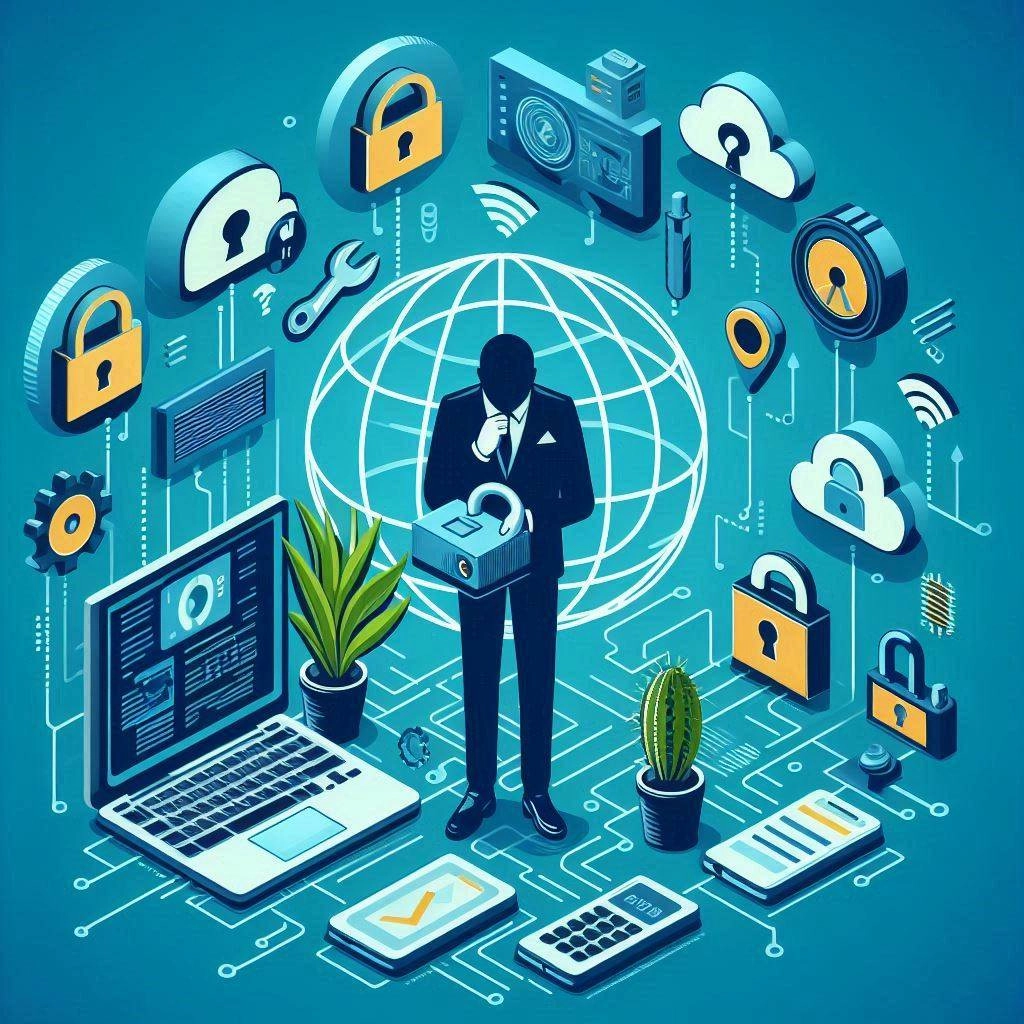Data security in the IoT: you can’t do without a VPN

IoT stands for "Internet of Things" (Internet of Things). Is a concept in which physical devices, such as household appliances, cars, industrial equipment and other objects, are equipped with sensors, software and network connections that allow them to collect and manipulate data. These devices can interact with each other and with third-party systems, opening up new horizons for automation, monitoring and control in various fields, including various industries, healthcare, farming, logistics and home automation.
Security in the IoT world — this is a hot topic. Although a combination of different protocols is necessary to ensure data protection (for example, firewalls, compliance, etc.), ensuring the security of information when transmitted over the Internet should be a priority. And it is VPN that is the technology that organizes a secure network on the Internet to which users and IoT devices are connected. Without a VPN, data is transmitted openly over the public internet and is susceptible to security breaches such as eavesdropping, information leaks, and hacking. By using a VPN, you significantly contribute to the secure and reliable operation of connected IoT devices.
How is IoT protection and security implemented via VPN?
Once your IoT gadget connects to the public internet, it becomes vulnerable to viruses, malware and hacker attacks. All information you send and receive over the Internet can be read or even changed.
A VPN creates a secure connection between the Internet and your IoT device. Even if data sent between devices is intercepted by a third party, encryption renders it as meaningless characters. Decrypting such data would require a significant amount of time and resources, making such attacks pointless. Additionally, when using a VPN, your geographic location and the location of your IoT devices remain hidden.
However, a secure system in IoT is not limited to just VPN. To ensure comprehensive protection, you should also consider other security measures, including:
Illustrative example of IoT vulnerabilities
In 2014, a group of computer science and engineering scientists from the University of Michigan decided to conduct research into potential vulnerabilities in the municipal traffic signaling system. By collaborating with relevant authorities to ensure public safety, this research team was able to gain access to traffic signal control systems managing nearly one hundred intersections and successfully demonstrated various safety issues. Although the study points to a systematic gap in the security infrastructure, the most serious vulnerabilities were identified in the communication between traffic lights and the transport network controller. This vulnerability allowed the research team to change the color of traffic lights at their discretion.
This type of hack can seriously compromise public safety, cause infrastructure and economic disruption, and overload municipal systems. Among other security measures, a VPN protects wireless commands sent over the public Internet by establishing an encrypted tunnel. A VPN can also limit the camera's access to only receiving commands from authorized IP addresses, isolating it from the public Internet. This ensures that even if someone logs into the traffic signal control system, the traffic lights will not respond to external commands.
Additional bonus from VPN in IoT: optimization of data management
By using a VPN, you provide transparent access to the network of your IoT devices and also receive security benefits. This means that a network connection can be initiated from your application to the device, and there are no restrictions on the network protocol that can be used since network address translation is not required. VPN allows you to “pull” data from IoT devices, instead of waiting for those devices to transmit data to you. In other words, this results in optimized data usage since data can be queried as needed.
To understand how data optimization can save money and resources, consider an example using a remote temperature sensor.
The German mechanical engineering company creates wind turbines that are sold all over the world. The company uses built-in SIM cards to track the geographic location of these machines and send alerts about various events. They provide information on energy consumption and operating time, as well as information about any mechanical faults.
The company does not need to access the data every day, but it must be able to connect to the wind generator to carry out diagnostics if a fault occurs. With the help of a correctly configured VPN company can communicate remotely with the machine and securely request diagnostic data if necessary. The VPN allows you to determine when a company initiates a connection to a machine, how much data is required to evaluate the fault, and the connection is instantly available at any workstation connected through the same VPN. Thus, the engineering company uses VPN both for effective data management and for providing instant access to its remote mechanisms.
Private VPN server: a stronger alternative for IoT protection
A private VPN server can be used in the same way to protect IoT devices and optimize data management, similar to corporate or commercial VPN services. Also, a private VPN server can provide additional security features such as traffic filtering, access control and event monitoring, which helps protect IoT devices from various types of cyber threats.
Therefore, the decision to buy a private VPN server on Private VPN server – rational decision. The site contains complete information about the advantages of using private VPN servers, as well as available tariffs, rental periods, payment methods and features of their functioning. Here you can also find many informative articles covering almost all aspects of VPN technologies.